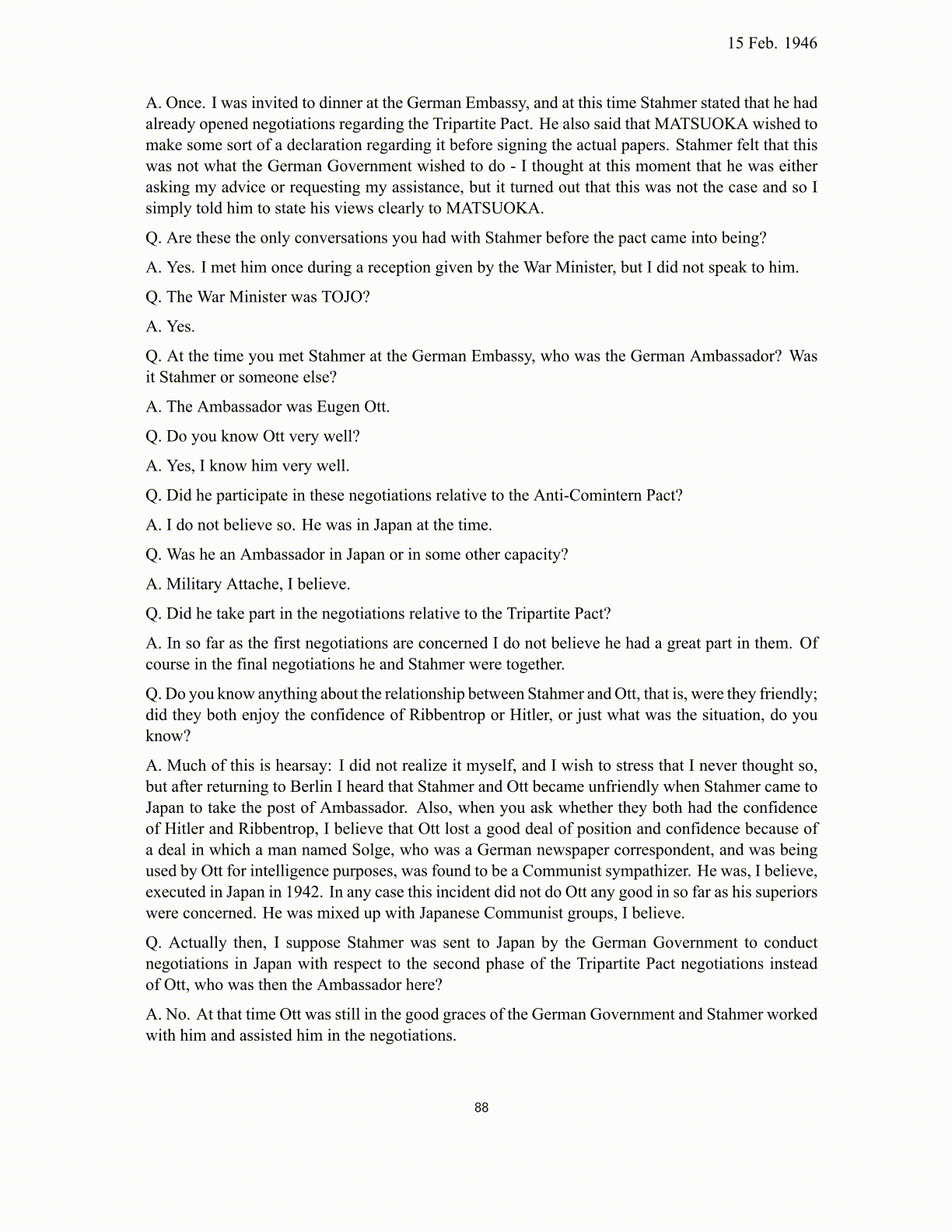
15 Feb. 1946 A. Once. I was invited to dinner at the German Embassy, and at this time Stahmer stated that he had already opened negotiations regarding the Tripartite Pact. He also said that MATSUOKA wished to make some sort of a declaration regarding it before signing the actual papers. Stahmer felt that this was not what the German Government wished to do - I thought at this moment that he was either asking my advice or requesting my assistance, but it turned out that this was not the case and so I simply told him to state his views clearly to MATSUOKA. Q. Are these the only conversations you had with Stahmer before the pact came into being? A. Yes. I met him once during a reception given by the War Minister, but I did not speak to him. Q. The War Minister was TOJO? A. Yes. Q. At the time you met Stahmer at the German Embassy, who was the German Ambassador? Was it Stahmer or someone else? A. The Ambassador was Eugen Ott. Q. Do you know Ott very well? A. Yes, I know him very well. Q. Did he participate in these negotiations relative to the Anti-Comintern Pact? A. I do not believe so. He was in Japan at the time. Q. Was he an Ambassador in Japan or in some other capacity? A. Military Attache, I believe. Q. Did he take part in the negotiations relative to the Tripartite Pact? A. In so far as the first negotiations are concerned I do not believe he had a great part in them. Of course in the final negotiations he and Stahmer were together. Q. Do you know anything about the relationship between Stahmer and Ott, that is, were they friendly; did they both enjoy the confidence of Ribbentrop or Hitler, or just what was the situation, do you know? A. Much of this is hearsay: I did not realize it myself, and I wish to stress that I never thought so, but after returning to Berlin I heard that Stahmer and Ott became unfriendly when Stahmer came to Japan to take the post of Ambassador. Also, when you ask whether they both had the confidence of Hitler and Ribbentrop, I believe that Ott lost a good deal of position and confidence because of a deal in which a man named Solge, who was a German newspaper correspondent, and was being used by Ott for intelligence purposes, was found to be a Communist sympathizer. He was, I believe, executed in Japan in 1942. In any case this incident did not do Ott any good in so far as his superiors were concerned. He was mixed up with Japanese Communist groups, I believe. Q. Actually then, I suppose Stahmer was sent to Japan by the German Government to conduct negotiations in Japan with respect to the second phase of the Tripartite Pact negotiations instead of Ott, who was then the Ambassador here? A. No. At that time Ott was still in the good graces of the German Government and Stahmer worked with him and assisted him in the negotiations. 88